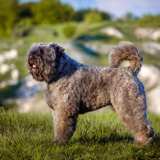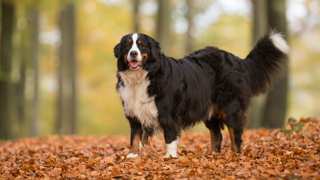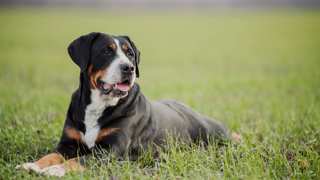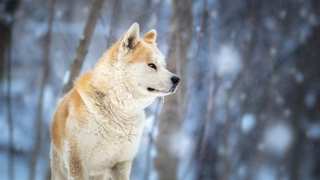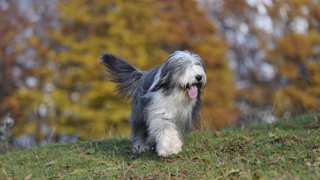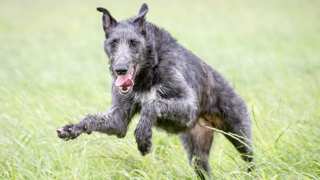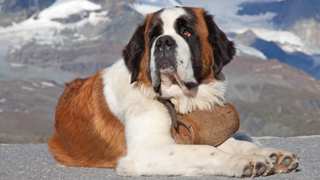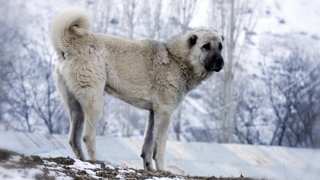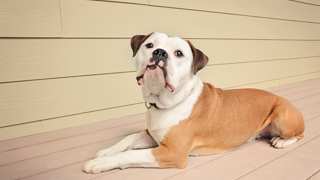As a herding breed, Bouvier des Flandres exercise requirements are fairly extensive overall. Though not too high-energy, these dogs are used to a good bit of physical activity on a daily basis, so they'll need a variety of exercises that both condition them physically (walking, jogging, fetch) and stimulate them mentally (games, canine sports). They make pretty good bicycling companions as well.
The typical adult Bouvier, depending on its age and overall activity level, will need at least an hour of proper exercise each day--which you can accomplish with a couple of good walks, jogs, or bike rides and a moderate period of play. You can start exercising your Bouvier puppy when it's three months old by taking it on short (5- to 7-minute) walks, then you can increase the walks' length and frequency as the puppy grows. And these early walks are a good opportunity to begin teaching your young Bouvier obedience, through leash training: have the puppy walk beside or behind you on the leash instead of being allowed to lead or "tug" on it. This, in the puppy's mind, establishes you as the leader, and should make training easier as the dog matures.
A few precautions to consider when exercising your Bouvier: first, puppies younger than nine months old shouldn't participate in activities that include a lot of jumping, running on hard surfaces, or navigating of stairs, as doing so can injure their still-developing joints and bones. And regardless of age, all Bouviers will definitely need to be leashed when in public. These dogs' herding instincts will make them try to "control" moving objects like people, animals, and bicyclists; they're also highly protective, so they might be defensive and confrontational around strange people and animals. A leash will help you control your Bouvier in these situations. Even when exercising in your own yard, the area will need to be securely fenced to keep the dog from running away. These dogs are also prone to gastric torsion (bloat), an often-fatal condition that occurs when deep-chested dogs like the Bouvier "wolf" their food, causing their stomachs to fill with excess air; bloat often happens when a dog eats just before or after exercising. So it's best not to exercise your Bouvier for an hour before or two hours after eating. And finally: Bouviers don't like being alone (and may suffer separation anxiety if they are), so they'll respond much better to exercises they perform together with their people.
Safeguards aside, it's important to exercise your Bouvier every single day. Though not super-active, these dogs are independent herders with a long history of frequent physical activity--and without it they'll become frustrated, destructive, and disobedient. Consistent exercise will be great for both the dog's and your own peace of mind! A few exercise ideas:
- Walking/Jogging/Bicycling: Two 30-minute walks (or 20-minute jogs or bike rides) per day is a good target
- Fetch/Frisbee: These dogs will chase a ball, stick, or Frisbee for hours
- Tug-of-War: Good indoor, rainy-day activity; use a rope or old towel
- Canine Sports: Bouviers can excel at obedience trials, cart-pulling, and other events
- Hiking: Excellent bonding activity; bonus if you can find a remote area where the dog can be off-leash
When indoors, it's a good idea to give your Bouvier access to one or more balls or chew-toys that will allow the dog to burn excess energy. It's also recommended that you establish a regular exercise schedule for the dog, such as walks, jogs and bike rides in the morning and evening and a play period in the afternoon.
